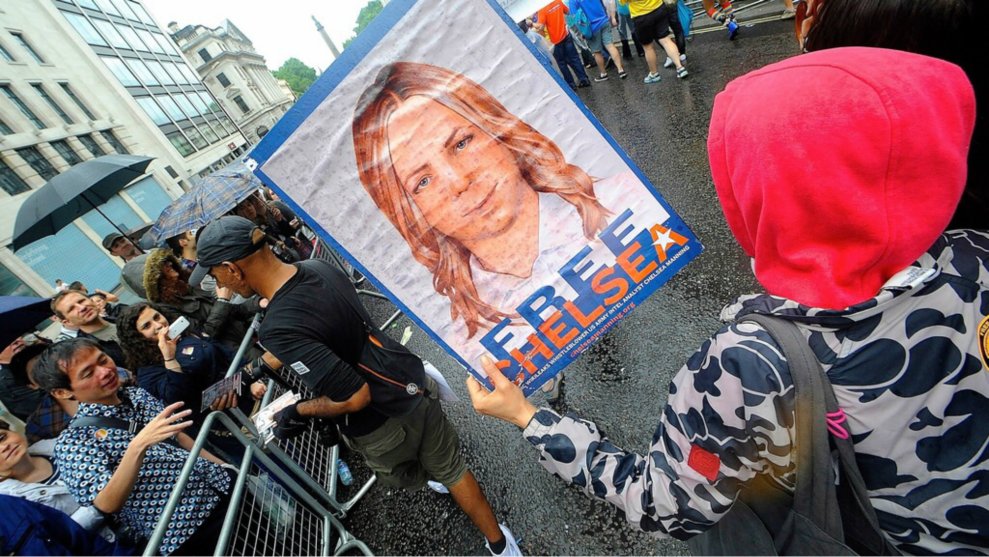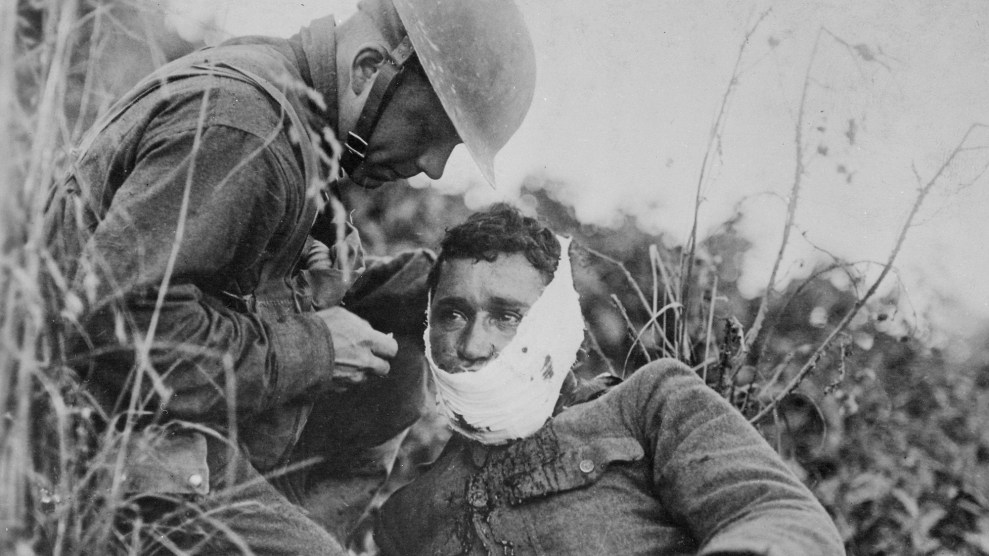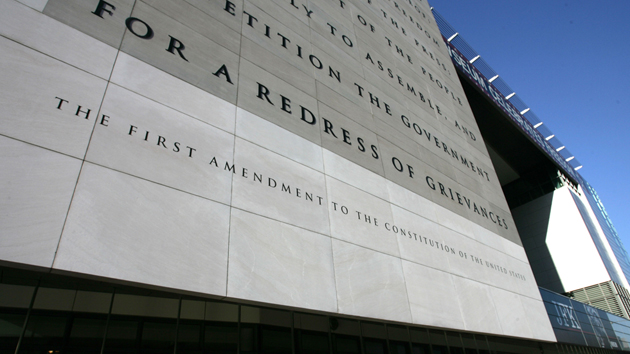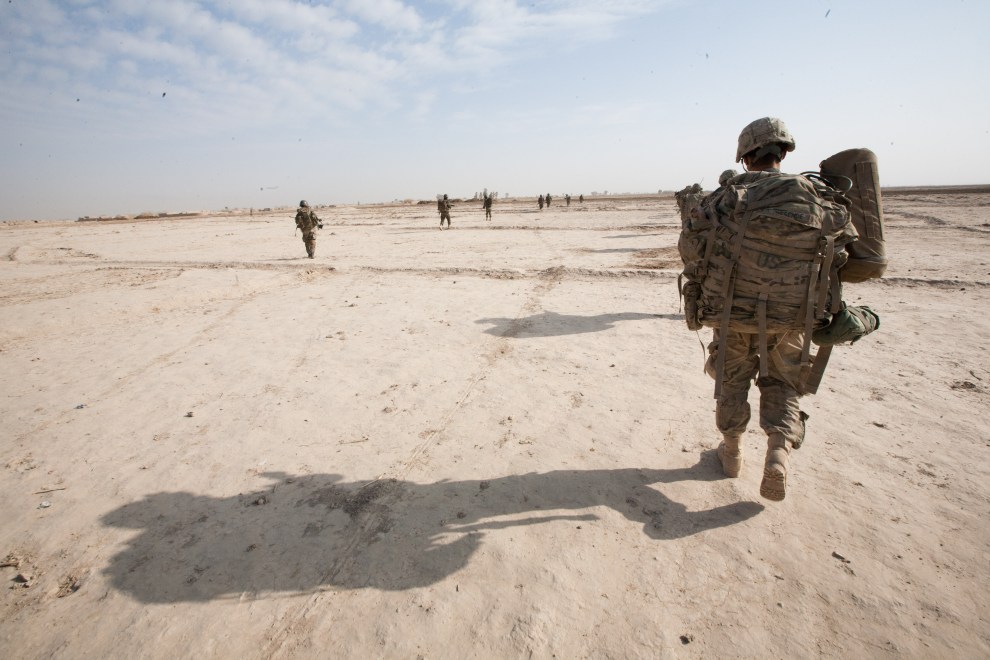
JR Ancheta/Zuma Wire
This story first appeared on the TomDispatch website.
“My guilt will never go away,” former Marine Matthew Hoh explained to me. “There is a significant portion of me that doesn’t believe it should be allowed to go away, that this pain is fair.”
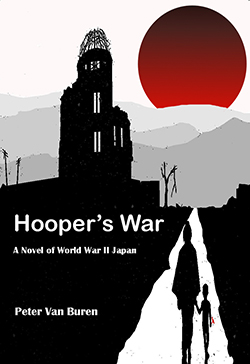
If America accepts the idea of fighting endless wars, it will have to accept something else as well: that the costs of war are similarly endless. I’m thinking about the trillions of dollars, the million or more “enemy” dead (a striking percentage of them civilians), the tens of thousands of American combat casualties, those 20 veteran suicides each day, and the diminished lives of those who survive all of that. There’s that pain, carried by an unknown number of women and men, that won’t disappear, ever, and that goes by the label “moral injury.”
When I started Hooper’s War, a novel about the end of World War II in the Pacific, I had in mind just that pain. I was thinking—couldn’t stop thinking, in fact—about what really happens to people in war, combatants and civilians alike. The need to tell that story grew in large part out of my own experiences in Iraq, where I spent a year embedded with a combat unit as a US State Department employee, and where I witnessed, among so many other horrors, two soldier suicides.
The new book began one day when Facebook retrieved photos of Iraqi children I had posted years ago, with a cheery “See Your Memories” caption on them. Oh yes, I remembered. Then, on the news, I began seeing places in Iraq familiar to me, but this time being overrun by Islamic State militants or later being re-retaken with the help of another generation of young Americans. And I kept running into people who’d been involved in my war and were all too ready to share too many drinks and tell me too much about what I was already up all too many nights thinking about.
As these experiences morphed first into nightmares and then into the basis for research, I found myself speaking with more veterans of more wars who continued to suffer in ways they had a hard time describing, but which they wrestled with everyday. I realized that I understood them, even as they seemed to be trying to put their feelings into words for the first time. Many of them described how they had entered the battle zones convinced that “we’re the good guys,” and then had to live with the depth of guilt and shame that followed when that sense didn’t survive the test of events.
Sometimes they were remarkably articulate, sometimes anything but. It seemed not to matter which war we were talking about—or whether I was reading a handwritten diary from the Korean War, an oral history of the Pacific War, or an old bestseller about a conflict ironically labeled “the Good War.” The story always seemed to be the same: decisions made in seconds that lasted lifetimes, including the uncomfortable balancing of morality and expediency in situations in which a soldier might believe horrific acts like torture could save lives or had to accept civilian casualties in pursuit of military objectives. In war, you were always living in a world in which no action seemed ideal and yet avoiding acting was often inconceivable.
Matthew Hoh, that former Marine, now a veterans advocate, introduced me to the phrase “moral injury,” though the term is usually attributed to clinical psychiatrist Jonathan Shay. He coined it in 1991 while working for the Department of Veterans Affairs.
We are, of course, beings with a complex sense of right and wrong, which can be messed with in disastrous ways. There are boundaries inside us that can’t be crossed without a great price being paid. Though the term moral injury is fairly new, especially outside military circles, the idea is as old as war. When people sent into conflict find their sense of right and wrong tested, when they violate deeply held convictions by doing something (such as killing a civilian in error) or failing to do something (such as not reporting a war crime), they suffer an injury to their core being.
Examples of this phenomenon are relatively commonplace in popular culture. Think of scenes from Tim O’Brien’s iconic Vietnam War book, The Things They Carried, William Manchester’s World War II odyssey, Goodbye Darkness, William Styron’s Sophie’s Choice, or films like William Wyler’s The Best Years of Our Lives and Oliver Stone’s Platoon.
You can find similar examples as far back as the Iliad and as recently as late last night. Lisa Ling, for instance, was a former Air Force technical sergeant who worked in America’s armed drone program before turning whistleblower. She was perhaps typical when she told the makers of the documentary film National Bird that, in helping carry out drone strikes which killed people across the globe by remote control, “I lost part of my humanity.”
Once upon a time, society expressed skepticism or worse toward such formulations, calling those who emerged visibly suffering from the acts of war “cowards” or dismissing them as fakes and frauds. Yet today post traumatic stress disorder (PTSD) is a widely acknowledged condition that can be identified by MRI tests.
PTSD and moral injury often occur together. “I think having both PTSD and moral injury are the normal things for us,” Ling says of those in the drone program. Moral injury, however, takes place at the intersection of psychology and spirituality, and so is, in a sense, all in someone’s head. When experiencing moral injury, a person wields guilt and/or shame as a self-inflicted penalty for a choice made. PTSD is more physical, more fear-based, and often a more direct response to an event or events witnessed in war.
Think of it this way: PTSD is more likely to result from seeing something terrible, moral injury from doing something terrible.
Moral injury doesn’t just affect soldiers, but civilians, too. Noncombatants are not just victims or targets, but often complex participants in war. This reality led me, as my book developed, to interview now-elderly Japanese who had experienced World War II as children. They described the horrific choices they faced, even at a young age. In a wartime landscape of hunger, survival often depended on small, grim acts that would never be forgotten.
Sometimes, I sensed in talking to them, as in interviewing former soldiers, that the psychic injuries of wartime don’t end until the sufferers do. Moral injury turns out to be a debt that often can never be repaid.
Those survivors of the end of the war in Japan who got the food necessary to live had to pay a price for knowing what happened to those who didn’t. In a landscape ravaged by war, just because something wasn’t your fault doesn’t mean it won’t be your responsibility. An act as simple as which of her children a mother offered a disappearing supply of water to first could mean the difference between life and death. And though, in truth, it might have been impossible in such circumstances and at such an age to know that you were responsible for the death of your sister or brother, 70 years later you might still be thinking about it with an almost unbearable sense of guilt.
And here’s a small footnote: Did you know that it’s possible to sit quietly on a Tokyo park bench in 2017, perfectly aware of whose distant relatives and countrymen dropped the bombs that took away the water that forced that mother to make that decision, and still shamefully continue taking notes, saying nothing as you witness someone else’s breakdown?
What help can there be for something so human?
There are, of course, the bad answers, all too often including opioids and alcohol. But sufferers soon learn that such substances just send the pain off to ambush you at another moment, and yet, as many told me, you may still look forward to the morning’s first throat-burning shot of something strong. Drinking and drugs have a way, however temporarily, of wiping out hours of pain that may stretch all the way back to the 1940s. You drink in the dark places, even after you understand that in the darkness you can see too much.
Tragically, suicide is never far from moral injury. The soul isn’t that big a place.
One former soldier told me he’s never forgiven his neighbor for talking him out of going into the garage with his rifle. Another said the question wasn’t why he might commit suicide, but why he hadn’t. Someone I met knows vets who have a “designated driver,” a keeper not of the car keys but of their guns during emotional rough patches.
The Department of Veterans Affairs counts a stunning average of 20 veteran suicides a day in America. About 65% of those are individuals 50 years old or older with little or no exposure to the country’s twenty-first-century conflicts. No one tracks the suicide rate for civilians who survive war, but it’s hard to imagine that it isn’t high as well. The cause of all those self-inflicted deaths can’t, of course, be traced to any one thing, but the pain that grows out of moral injury is patient.
For such sufferers, however, progress is being made, even if the trip back is as complex as the individual. The Department of Veterans Affairs now acknowledges moral injury and its effects, and in 2014 Syracuse University created the Moral Injury Project to bring together vets, doctors, and chaplains to work on how to deal with it. In the meantime, psychologists are developing diagnostic assessment tools for what some call “soul repair.”
One effective path back seems to be through helping patients sort out just what happened to them and, when it comes to remembered transgressions, what part of those may be their own responsibility (though not necessarily their own fault). What doesn’t work, according to Matthew Hoh, is trying to convince veterans who view themselves as damaged that, in the present American manner, they are really heroes.
Others suffering moral injury may try to deal with it by seeking forgiveness.
Lisa Ling, for example, traveled to Afghanistan, with a desire to truly grasp her role in a drone program that regularly killed its victims from thousands of miles away. To her surprise, during an encounter with the relatives of some civilian victims of such drone strikes, they forgave her. “I didn’t ask for forgiveness,” Ling told me, referring to what she had done in the drone program, “because what I did was unforgivable.”
Killing by remote control requires many hands. Ling worked on databases and IT networking. Analysts studied the information in those databases to recommend humans to target. Sensor operators manipulated lasers to pinpoint where a drone pilot would eventually slam his missile home for the kill.
“Like all of us,” she added, “I spent time on the mission floor, or at briefings where I saw and heard devastating things, or blatant lies, but to actually connect my individual work to single events wasn’t possible due to the diffusion of responsibility. For sensor operators, it is more like stepping on ants. For analysts, they get to know people over time. As watchers and listeners they describe an intimacy that comes with predictably knowing their family patterns. Kissing the kids, taking children to school, and then seeing these same people die.”
Another way back is for the sufferer to try to rebalance the internal scales a little by making amends of some sort. In the case of moral injury, this can often mean drawing a line between who one was then and who one might be now. Think of it as an attempt to re-inscribe those internal borders that were transgressed so long ago.
Perhaps not so surprisingly, the connections between moral injury and whistleblowing, like those between moral injury and suicide, appear to run deep.
For example, Iraq War whistleblower Chelsea Manning’s decision to leak video of civilian deaths caused by members of the US military may have been her version of amends, driven by guilt over silently witnessing war crimes. Among the acts she saw, for instance, was a raid on a printing facility that had been billed as an al-Qaeda location but wasn’t. The US military had, in fact, been tricked into shutting down the work of political opponents of Iraq’s then-prime minister Nouri al-Maliki. Until Manning finally tells her story, this remains speculative, but I was at the same forward operating base in Iraq as she was and know what happened and how it affected me, as well as the others around us.
Whistleblowers (and I was one of them) talk of conscience, of a realization that we were part of something that was wrong. Jonathan Shay suggests that the failure of moral agency does not have to rest with the individual alone. It can involve witnessing a betrayal of “what’s right” by a person in legitimate authority.
That part of moral injury could help explain one of the most significant whistleblowers of our time. In talking about his reasons for blowing the whistle, Edward Snowden invoked questions of right and wrong when it came to the actions of senior American government officials. It would be a worthy question to put to Snowden: How much guilt and shame—the hallmarks of moral injury—do you retain from having been part of the surveillance state, and how much was your whistleblowing driven by trying to rid yourself of it?
After all, for those suffering from moral injury, the goal is always the same: to somehow reclaim the good parts of oneself and to accept—but not be eternally defined by—what one did or didn’t do.
I know, because for me, this is so much more than fiction.
“You mean that Vietnam helicopter thing?” A well-meaning family doctor asked me this when I got back from Iraq in 2010, referring to the way some vets react to the sound of a helicopter, sending them “back to the jungle.” No, no, far more than that, I responded, and told him a little about my sorry role in administering reconstruction projects in Iraq and how it left me more interested in vodka than my family. That was my own personal taste of moral injury, of a deeply felt failure to accomplish any of the good I’d hoped to do, let down by senior leaders I once believed in. It’s why I tell the story in Hooper’s War in reverse order, opening with a broken Nate Hooper in his late eighties finally finding a form of redemption for the events of a few weeks at war when he was 18. By moving toward an innocent boy as far away in rural Ohio as one can be from war, I felt I was working through my own experience of the damage war causes deep inside the self.
In tallying the costs of war, what’s the price of a quick death versus a slow one? A soldier who leaves his brains on the wall in the den two decades after his war ended or one whose body remains untouched but who left his mind 10,000 miles away?
The price of endless war is beyond calculation. As our wars continue to morph and roll on, the costs—financial, emotional, and in blood—only pile up as the men and women who have been welcomed home as if it were all over continue to be torn apart. The nasty conclusion on the scales of moral injury: that our endless conflicts may indeed have left our society, one that just can’t stop itself from making war, as one of the casualties.
Peter Van Buren, a former State Department official, blew the whistle on waste and mismanagement during the Iraq “reconstruction” in his book We Meant Well: How I Helped Lose the Battle for the Hearts and Minds of the Iraqi People. His latest book, Hooper’s War, is a novel set in World War II Japan.

